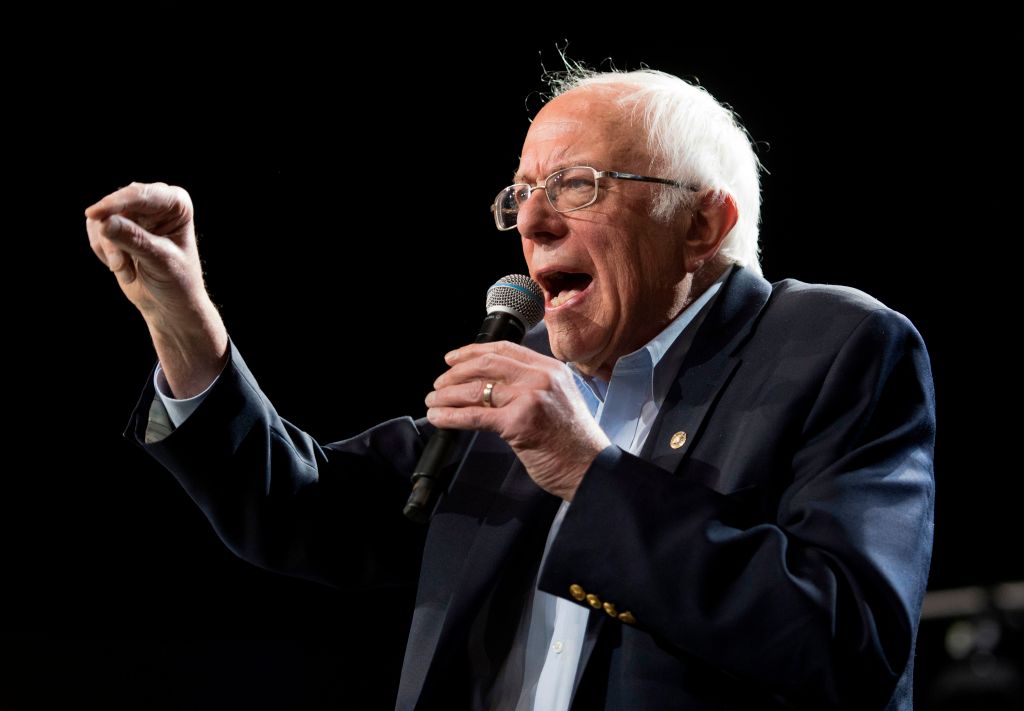America Needs Stronger Political Parties

Over the past few weeks, the Democratic establishment has launched a coordinated effort to coalesce around Joe Biden, giving him the momentum he badly needed to win Super Tuesdays I, II, and now III. It’s now all but guaranteed that he’ll be the nominee.
Unsurprisingly, Bernie Sanders and his supporters have expressed outrage at the Democratic establishment’s imposition on the electoral process. In the absence of such an intervention, they argue, the collective action problem would have made Sanders, the most polarizing figure among Democrats, the presumptive nominee. Certain Republicans, too, have gone to war with their party’s establishment for similar reasons in recent years.
Supporters of outsider politics hold that their political agendas could be realized were it not for a domineering and corrupt establishment. But our political landscape, counterintuitively, has actually seen a collapse of party influence over the past few decades. The institutional strength of a major political party may cause some people to recoil, but the fact is that thwarting the excesses of democracy has proved a necessary function in maintaining the stability and durability of our republic.
If parties functioned well, our divides wouldn’t be quite so deep.
Indeed, compromise and cooperation are essential if a party is going to work properly. Putting out a palatable platform that appeals to the distinct and diverse groups that make up our country requires cohesion and unity.
To achieve that, party elders and officials have historically played a central role in vetting candidates. During the 1800s and early 1900s, for instance, party officials chose delegates for the conventions. The delegates, in turn, voted for candidates that reflected the preferences of their party bosses. During the mid-20th century, primaries were conducted to gauge public opinion, but weren’t in any way binding.
Since the 1970s, however, both parties have relinquished their responsibility to choose candidates in favor of the popular vote and transparency. And while transparency is an ostensible good, this democratization of political parties has made agenda setting and coalition building nearly impossible. Primary voters, especially in caucuses, are generally the most enthusiastic and partisan people within the parties. That’s why candidates tend to race as far right or left as they can, only to return to the center for the general election.
These voters are likely to have different preferences than the party bosses, who have the broader goal of building nationwide coalitions.
Over the last four years, the most mobilized and enthusiastic campaigns have supported men who ran fervently against party insiders and the establishment: Donald Trump and Bernie Sanders. In a pre-1970s political era, the Republican Party would have had the political bandwidth to thwart Trump’s campaign. Today, the Republican establishment has become a tool of Trump’s and a platform on which he grows his political brand.
The GOP has conformed entirely to Trump’s agenda—an agenda that looked very different from the Republican platform before 2016. Understanding this isn’t necessarily an indictment of that agenda. Still, it’s striking just how thoroughly a major party has been turned upside down within the span of four years.
As political scientist Joseph Postell put it:
Party unity today appears to be based on agreement rather than loyalty. A party that engenders loyalty is able to overcome its internal differences by appealing to the broader principles that unite it. When today’s parties encounter differences that divide them internally, they fall apart.
This Trump and Bernie phenomena have incentivized other politicians to act like outsiders, too. Becoming associated with “the establishment” has become a sort of stand-in for corruption and inauthenticity. In the 2016 GOP primary, for example, Ted Cruz garnered a significant amount of political capital by underscoring his differences with GOP Senate Majority Leader Mitch McConnell. Progressives have also used this tactic.
This anti-establishment fervor has been exacerbated by misguided legislation that has directed spending power away from political parties and into the hands of grassroots groups and Super PACs. As a result, parties have lost a significant amount of bargaining power to more fringe influences.
That’s not to suggest that establishment politics are perfect. But too much deconsolidation can lead to dysfunctional politics and hyper-partisanship.
By no means did the Democratic establishment rectify all these issues by rallying around Biden. But it’s encouraging to see parties take more of an active role in affecting the outcomes of their primaries. For those who want to stabilize the political turmoil that’s erupted of late, it’s a big step in the right direction.
Ethan Lamb is a Young Voices contributor and a law student at Georgetown University. Follow him on Twitter @realethanlamb.
Comments